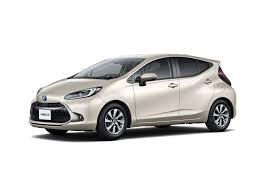Financing a car can make the dream of owning a vehicle more achievable, especially as car prices continue to rise. In Lahore, there are several car financing options available, ranging from bank loans to dealership financing, each with different terms and benefits. This guide will walk you through how to finance a car for sale in Lahore, from understanding loan types to finding the best financing options for your needs.
1. Explore Different Financing Options
There are several ways to finance a car in Lahore. Here are the primary options available:
- Bank Loans: Most banks in Lahore offer car loans with flexible payment terms, and they often provide financing for both new and used cars. Banks like HBL, UBL, and Meezan Bank offer competitive rates with varying loan terms.
- Islamic Financing: For those who prefer Sharia-compliant financing, options like Meezan Car Ijarah are available. These plans work on a leasing basis, where the bank owns the car until the loan is paid off.
- Dealership Financing: Some dealerships in Lahore have partnerships with banks or offer their own financing plans. Dealership financing can be convenient, as they often manage the entire loan process.
- Peer-to-Peer Lending and Private Financing: Some individuals choose private lenders for financing, although these are less common and can have higher interest rates. Ensure you work with trusted lenders if you choose this route.
2. Compare Interest Rates and Loan Terms
Interest rates and loan terms vary by lender, so it’s essential to compare options to find the best fit. Factors to consider include:
- Interest Rate: Bank interest rates in Pakistan usually range from 10-18% depending on the type of financing and the bank. Sharia-compliant loans might have different rates based on the leasing model.
- Loan Tenure: The tenure or repayment period can range from 1 to 7 years. A shorter loan term generally means less interest paid overall, but higher monthly payments.
- Down Payment Requirements: Most lenders require a down payment, typically 20-30% of the car’s price. Some banks may offer zero-down financing options, but these can come with higher interest rates.
Comparing rates on websites like PakWheels, Famewheels, or directly on bank websites can give you an idea of what to expect.
3. Determine Your Budget and Loan Eligibility
Before approaching lenders, it’s helpful to set a realistic budget based on your monthly income and expenses. Here’s how to determine your budget:
- Monthly Installment: Aim to spend no more than 15-20% of your monthly income on car payments.
- Credit Score: In Pakistan, some banks consider your credit score or credit history before approving loans. A good credit score can improve your chances of getting a better interest rate.
- Other Debts: If you have other loans, factor in these payments to ensure you don’t overextend your finances.
4. Prepare Required Documents
When applying for car financing, lenders require specific documentation to verify your eligibility. Documents you may need include:
- Proof of Income: Recent pay slips or bank statements to show your income stability.
- Proof of Identity: CNIC or NICOP for identification.
- Proof of Address: Utility bills or rental agreements to confirm your residence.
- Employment Verification: If you’re employed, some banks require an employment verification letter.
Each lender has specific requirements, so it’s a good idea to check with the bank or dealer beforehand.
5. Use Online Loan Calculators
Online loan calculators, available on most bank websites, can be invaluable for calculating monthly payments based on the loan amount, interest rate, and term. You can adjust the variables to see different monthly payment scenarios, helping you choose an option that fits comfortably within your budget.
Some popular loan calculators in Pakistan are found on sites like PakWheels, Famewheels, and individual bank websites like HBL and UBL.
6. Consider Additional Costs
In addition to the car loan, there are other costs to keep in mind:
- Insurance: Comprehensive insurance is usually required when financing a car, and some banks may even provide insurance packages. Insurance rates can vary, so it’s worth comparing different options.
- Registration and Taxes: These are often required upfront, so factor them into your budget.
- Maintenance: A car’s upkeep, including fuel, servicing, and occasional repairs, should also be part of your monthly budget.
7. Get Pre-Approval for Faster Processing
Pre-approval can make the buying process smoother by allowing you to know your budget before stepping into the dealership. Here’s how it works:
- Visit the Bank: Approach your preferred bank and apply for pre-approval, which assesses your eligibility for a specific loan amount.
- Determine Loan Limit: Pre-approval gives you an idea of your spending limit, helping you to narrow down car choices within your budget.
- Faster Purchase Process: Pre-approval can speed up the buying process as much of the loan paperwork is completed in advance.
8. Negotiate Loan Terms
If you have a good credit history or if you’re financing through a dealership, you might be able to negotiate better terms, such as:
- Lower Interest Rate: Banks may be willing to lower interest rates slightly for customers with good credit.
- Waived Processing Fees: Some banks charge processing fees, but they may be waived upon request.
- Flexible Payment Options: Some lenders allow for seasonal payment schedules or other flexibilities that may better suit your financial situation.
9. Select a Car and Complete the Purchase
Once your loan is approved, it’s time to select your car. Here’s what to consider at this stage:
- Certified Dealers and Online Platforms: Choose from reliable sources like Famewheels, PakWheels, or authorized dealerships, especially for used cars.
- Inspection and Test Drive: Ensure the car meets your needs, and conduct a full inspection or use third-party inspection services for used cars.
- Sign the Agreement: After finalizing your car, sign the loan agreement with the lender and complete the necessary paperwork with the dealership.
10. Maintain Regular Payments
After purchasing, make sure to maintain regular payments to avoid penalties and build a positive credit history. Set up reminders or consider automatic payments if your bank offers this feature.
Final Thoughts
Financing a car in Lahore can be a smooth process if you research your options, prepare the necessary documents, and carefully assess your financial situation. With a clear understanding of the different financing options and reputable platforms like Famewheels and PakWheels, you can find an affordable and convenient way to get your dream car. Take time to explore each step, from budgeting and pre-approval to finalizing the deal, to ensure you make the best decision for your needs and finances. Happy car shopping!


